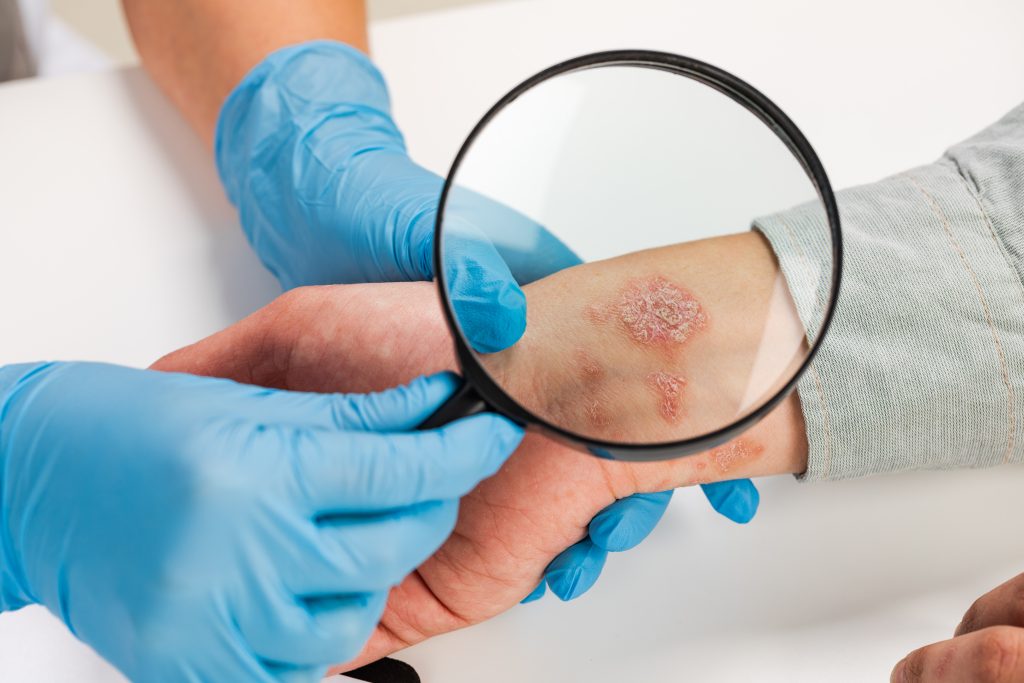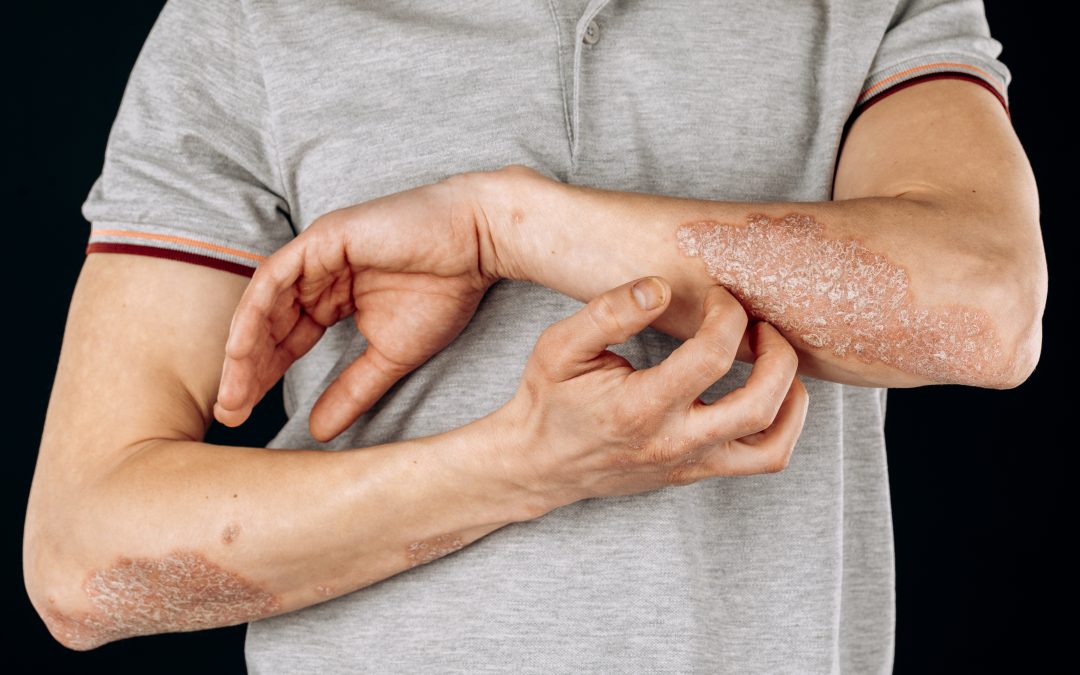In a busy city like Chicago, where gyms, schools, and public transportation bring people close together, fungal infections like ringworm can spread quickly through contact with contaminated surfaces.
A common question people ask is: Does alcohol kill ringworm on surfaces? The answer depends on the type of alcohol used, how it’s applied, and the surface it’s used on.
This guide explains what works, what doesn’t, and how to protect your environment effectively.
How Ringworm Survives on Surfaces?
Worms do not cause ringworm — it’s a fungal infection triggered by organisms known as dermatophytes. These fungi can live for weeks or even months on surfaces, waiting for the right conditions to grow again.
In Chicago’s environment — with its mix of humid summers and dry, heated winters — ringworm spores find plenty of chances to survive. They can live on clothing, bedding, towels, gym mats, and even furniture. When the skin comes into contact with these contaminated items, infection can start quickly.
Ringworm spores are tough because they form a protective shell that helps them resist cleaning agents and mild disinfectants.
That’s why regular dusting or light cleaning isn’t enough to destroy them. Proper disinfection with stronger solutions is key to preventing reinfection.
Key survival factors include:
- Moisture: Fungal spores thrive in damp, sweaty environments, such as gym lockers and shower floors.
- Warmth: Heated indoor spaces during winter can encourage fungal persistence.
- Porous surfaces: Fabrics and carpets can trap spores deep inside fibers.
- Poor cleaning habits: Using weak cleaners or skipping disinfection allows spores to regrow.
Maintaining a clean home environment is essential — especially if someone in the house has been infected. To learn about infections that spread easily through shared spaces, see How Is Strep Throat Transmitted? for helpful prevention tips.
Similarly, for advice on managing early infection symptoms, you may explore “What Are Effective Remedies and Treatments for Sinus Infections?,” which also discusses safe home disinfection techniques. By combining strong cleaning habits with awareness of your environment, you can stop the ringworm fungus from surviving and spreading.
When Alcohol Works — and When It Doesn’t?
Alcohol — especially isopropyl alcohol (rubbing alcohol) — is a popular household cleaner. It’s effective against many bacteria and viruses, but not always against fungal spores, such as those that cause ringworm.
To kill ringworm spores, the alcohol concentration should be at least 70%. The solution needs to stay on the surface for 30 seconds to 1 minute to disrupt the fungal cell structure. This makes it useful for quick cleanups on non-porous surfaces such as countertops, metal tools, and glass objects.
However, alcohol is less effective on porous materials like fabric, wood, or carpet because it evaporates too quickly to penetrate deeply. Fungal spores hidden inside those surfaces often survive and cause reinfection later.
When alcohol works best:
- On hard, smooth surfaces (tiles, glass, and metal).
- For small disinfecting tasks such as cleaning scissors, phones, or bathroom fixtures.
- When combined with other antifungal cleaning methods, such as hot water washing.
When alcohol doesn’t work well:
- On absorbent materials like bedding, clothing, and upholstered furniture.
- If the alcohol concentration is below 70%.
- When wiped too quickly without letting it sit and dry naturally.
For lasting protection, follow up alcohol cleaning with deep disinfection using antifungal sprays or a bleach solution. You can learn more about safe cleaning practices from guides such as “What Makes Same-Day Medical Attention Essential for Managing Health Outcomes,” which emphasizes timely care and sanitation to prevent the spread of infection.
If you suspect your infection came from a cut or skin wound, reading How to Treat a Bite Wound can also help you understand how proper surface and wound hygiene work together to stop fungal or bacterial contamination. By knowing when alcohol truly works and when it doesn’t, Chicago residents can use cleaning resources effectively — saving time and keeping their homes healthier.
Kill Ringworm Spores with Alcohol
The effectiveness of alcohol depends on its concentration and contact time. Regular rubbing alcohol (isopropyl alcohol) or ethanol can kill many bacteria and viruses, but fungal spores are more resistant.
To kill ringworm spores, alcohol should be at least 70% concentration and must remain on the surface for at least 30 seconds to 1 minute. However, even at that strength, alcohol may not kill all spores, especially on porous surfaces such as fabric, carpet, or towels.
This means that while alcohol can reduce fungal contamination, it’s not always enough to guarantee total elimination. For long-lasting results, pairing alcohol cleaning with hot water washing or antifungal sprays is far more effective.
Safer Alternatives and Cleaning Methods
While alcohol can help disinfect non-porous items like countertops, scissors, or phones, other methods are often better for complete fungal control.
1. Bleach Solution
A diluted bleach solution (1 part bleach to 10 parts water) is one of the most effective ways to kill ringworm spores. Use it carefully on hard surfaces and let it sit for at least 5 minutes before rinsing.
2. Hot Water and Detergent
For fabrics and linens, wash in hot water (above 60°C or 140°F) with detergent to kill fungal spores. Always dry items completely, since moisture allows fungi to survive.
3. Antifungal Cleaning Products
Antifungal sprays containing ingredients like benzalkonium chloride or phenolic compounds are designed to kill fungi effectively. These can be found in most Chicago pharmacies or online.
4. Steam Cleaning
For carpets or upholstered furniture, steam cleaning can destroy fungal spores trapped in fibers. Regular professional cleaning prevents reinfection in shared spaces.
Preventing Ringworm Spread in Your Chicago Home
Maintaining a clean home is essential for preventing ringworm reinfection. Regularly disinfecting common areas, especially during Chicago’s humid summer months, makes a big difference.
Here are simple ways to stay protected:
- Disinfect surfaces like bathroom floors, gym equipment, and doorknobs weekly.
- Wash towels, bed sheets, and workout clothes in hot water.
- Avoid walking barefoot in locker rooms or public showers.
- Keep pets clean and check them for signs of ringworm.
- Ensure your home has good ventilation to prevent excess humidity.
Preventing spread is easier when you combine surface disinfection with good personal hygiene.
Environmental Factors in Chicago That Affect Fungal Growth
Chicago’s diverse climate — humid summers and heated indoor winters — can influence how long ringworm spores survive. In warm, damp environments, fungal spores can multiply quickly on sweat-soaked clothing or wet towels.
During winter, indoor heating can dry out the air but trap warmth in heavy layers of clothing, creating small pockets of moisture against the skin. It is why keeping your home environment balanced is key.
Using dehumidifiers in summer and maintaining moderate indoor humidity in winter helps reduce fungal survival rates. Also, regular cleaning routines become more important in Chicago’s shared residential buildings and gyms, where surface contact is frequent.
Seek Medical Help for Persistent Ringworm
Even with regular cleaning, if you or someone in your home keeps getting infected, it may be time to consult a medical professional. Persistent or recurring infections often indicate that fungal spores remain in your environment or that your immune system needs support.
Doctors can prescribe stronger antifungal creams or oral medications to eliminate the infection. They can also guide you on preventing reinfection through proper disinfection habits and personal care. Getting same-day treatment can stop the infection before it spreads to others — something especially useful in a fast-paced city like Chicago.
Use Alcohol Safely While Cleaning
While alcohol can help control fungal contamination, it should be used carefully.
- Always work in a ventilated area to avoid inhaling fumes.
- Keep alcohol away from open flames, as it is highly flammable.
- Use disposable gloves when cleaning infected areas to prevent skin contact.
- Never mix alcohol with bleach — this combination releases toxic gases.
For personal safety, always store alcohol-based cleaners away from children and pets.
Decontaminating Your Home
Once someone in your home contracts ringworm, it’s important to clean everything the infection might have touched. Fungal spores can remain active for weeks, causing reinfection even after the skin clears.
- Wash bed linens, towels, and clothing every two days in hot water.
- Disinfect hard surfaces like doorknobs, phones, and keyboards daily.
- Clean pet bedding and grooming tools frequently.
- Replace sponges, loofahs, and old razors that might harbor spores.
Consistency is key — cleaning once isn’t enough. Regular, repeated disinfection over several weeks ensures your environment stays fungus-free.
Professional Cleaning Services in Chicago
For large spaces or recurring fungal problems, hiring a professional cleaning service may be the best solution. Many cleaning companies in Chicago now offer antimicrobial and antifungal treatments designed for gyms, apartments, and offices. These services use hospital-grade disinfectants that are stronger than regular household cleaners and target spores directly.
If you manage a shared facility, scheduling monthly professional sanitization helps keep everyone safe and minimizes the spread of fungal and bacterial infections.

Long-Term Prevention Tips for Chicago Residents
The most effective way to avoid ringworm is through consistent hygiene and proactive prevention.
- Keep your skin dry and clean, especially after workouts.
- Wear loose, breathable clothing to reduce sweat buildup.
- Avoid sharing towels, shoes, or personal grooming items.
- Disinfect home surfaces weekly.
- Boost your immune system with a balanced diet and enough rest.
Good hygiene, paired with routine surface cleaning, keeps both your skin and your surroundings healthy year-round.
Holistic Approach to Keeping Ringworm Away
Preventing ringworm goes beyond cleaning surfaces. It involves strengthening your body’s defenses and maintaining a healthy lifestyle.
- Eat foods rich in vitamins and antioxidants to support your immune system.
- Shower after workouts and dry skin thoroughly.
- Wear cotton fabrics that allow airflow.
- Manage stress, since it can weaken your immune system.
By combining natural care, proper cleaning, and professional guidance, you can keep fungal infections under control for good.
Visit for Further Information:
- How Is Strep Throat Transmitted?
- How To Treat a Bite Wound?
- How To Get Rid of a Stuffy Nose Instantly?
Trusted Medical Resource
For detailed information on cleaning and fungal prevention, visit the Centers for Disease Control and Prevention (CDC) guide on Fungal Diseases and Prevention Methods.
FAQs
Does rubbing alcohol kill ringworm instantly?
No. Alcohol needs to stay on the surface for at least 30 seconds to a minute and may not kill all spores, especially on porous materials.
Is alcohol safe to use on furniture?
Yes, but only on non-porous or sealed surfaces. For fabric or leather, use a steam cleaner or antifungal spray instead.
Can alcohol be used on the skin to kill ringworm?
It’s not recommended. Alcohol can irritate the skin and slow healing. Use antifungal creams prescribed by a doctor instead.
How long can ringworm spores live on surfaces?
Spores can survive for several weeks or even months if not cleaned properly, especially in warm and moist conditions.
Does hand sanitizer kill ringworm?
Most hand sanitizers contain alcohol, but they aren’t formulated to kill fungal spores effectively.
What is the best cleaner for killing ringworm on hard surfaces?
A bleach-based solution or an antifungal disinfectant spray is more effective than alcohol for deep cleaning.
Can pets spread ringworm to humans?
Yes. Cats and dogs can carry ringworm spores and transmit them through contact or shared bedding.
Should I use alcohol or bleach for cleaning ringworm surfaces?
Bleach is more effective for killing fungal spores. Use alcohol only for quick cleaning of non-porous areas.
How often should I disinfect after a ringworm infection?
Disinfect affected areas daily for at least two weeks, and continue cleaning weekly to prevent reinfection.
Can the humidity in Chicago make ringworm worse?
Absolutely. High humidity promotes fungal growth, making consistent cleaning and proper ventilation essential.

